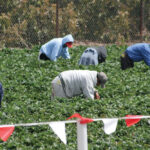Canada’s international trade minister said the country’s free trade deal with the European Union is working as intended. Mary Ng, Canada’s minister of small business, export promotion and international trade, made the comments in a joint statement with the European Commission. European officials met virtually with Ng on March 25 to discuss progress of implementing the Comprehensive










